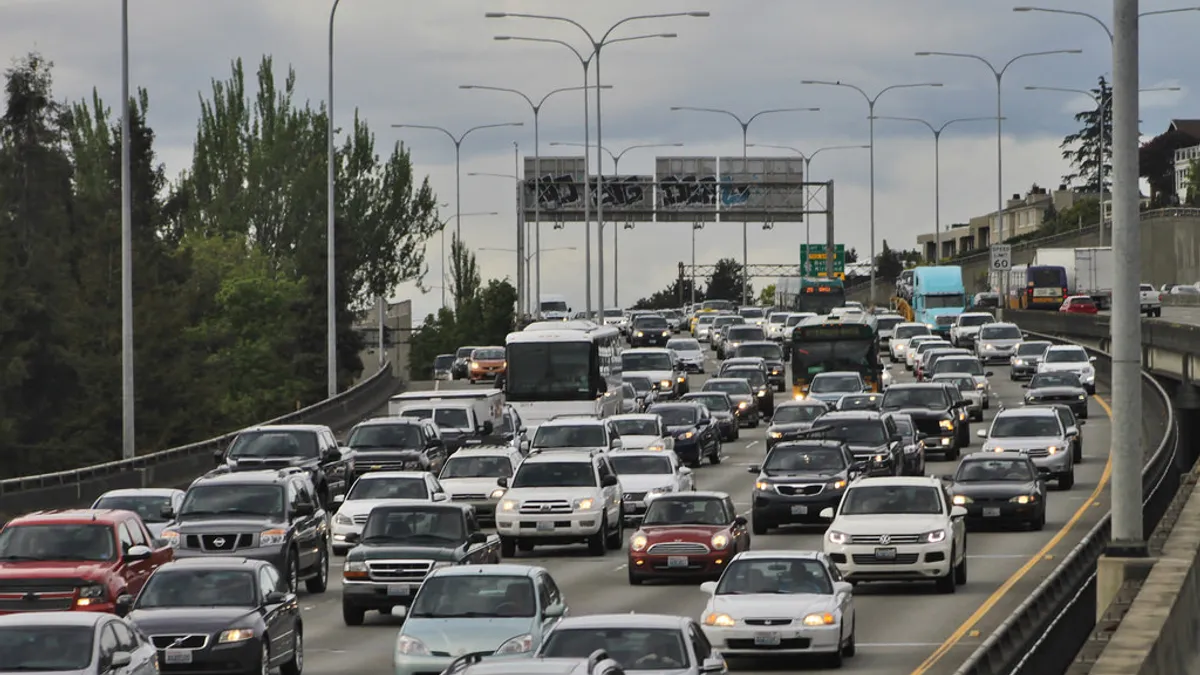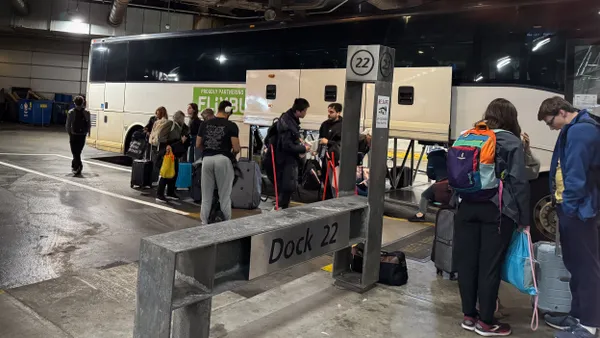Dive Brief:
- Philadelphia is among the cities considering a congestion pricing plan similar to New York's, according to an article in The New York Times, examining whether other cities would follow New York's lead. A spokesperson for Philadelphia Mayor Jim Kenney is quoted, noting this is the first time the city is seriously considering such a plan.
- A Philadelphia transportation department official tells The Inquirer the city will be able to learn from New York's experience with congestion pricing. He had previously said Philadelphia likely would have to spend hundreds of thousands of dollars to study congestion pricing before implementing it.
- Philadelphia does not have a congestion pricing proposal on the table and leaders have not indicated that they're drawing up one, but they report being open to the idea.
Dive Insight:
The congestion pricing plan that New York's state legislature approved earlier this week has been a long time coming. Leaders have engaged in back-and-forth discussions for years over whether congestion pricing would be the best way to cut down on the city's crushing rush-hour traffic while simultaneously funding transit improvements.
Although New York is the largest U.S. city to adopt this type of plan, others have been investigating and implementing their own versions of the idea for some time. Minneapolis uses dynamic toll pricing during peak times, Northern Virginia's Interstate 66 implemented tolls during peak times for motorists traveling into Washington, DC and Miami has open-road tolling during peak hours. San Francisco, Los Angeles and Seattle are among the cities investigating congestion pricing plans.
Undertaking a plan to alter how commuters get around is a major effort, and city leaders across the country have taken their time with researching ideas instead of leaping in and adding congestion pricing. It often involves infrastructure investments in addition to public education campaigns. Unsurprisingly, the public often overwhelming dislikes the idea of paying another fee, as evidenced by this week's Quinnipiac poll indicating 54% of New Yorkers oppose the idea. But congestion pricing's potential to solve numerous transportation-related problems with one initiative makes the idea quite attractive to leaders.
Examining other cities' case studies is a popular way for leaders to determine best practices for projects and whether concepts could work in their cities. Many eyes will be on New York as its congestion pricing program rolls out and it would not be surprising to see other cities follow suit in the months ahead.












